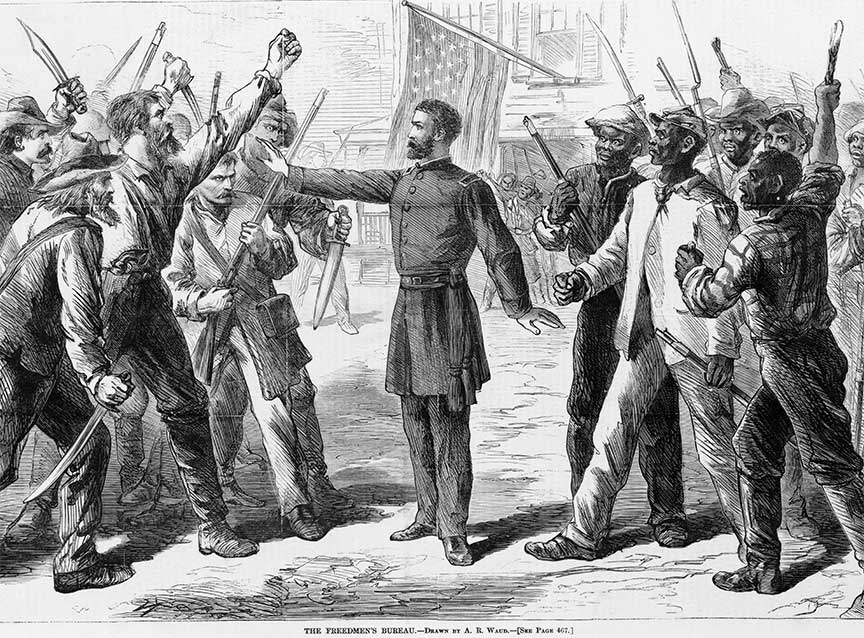1865 FREEDMAN BUREAU ESTABLISHED

On March 3, 1865 the Congress established the Bureau of Freedmen, Refugees, and Abandoned Lands. The goal of the Bureau was to aid freed blacks. The Bureau, in the course of five years, issued twenty million rations, established 50 hospitals, set up 4,330 schools and helped establish the first Black colleges..
In the aftermath of the Civil War, millions of formerly enslaved people were set free. Many had no property, limited education, and faced immense challenges in integrating into free society. Additionally, the war left a large number of displaced white citizens in need. To address these pressing issues, on March 3, 1865, Congress established the Bureau of Freedmen, Refugees, and Abandoned Lands, usually referred to as the Freedmen's Bureau.
Goals
- Distribute food and clothing to destitute freedmen and to white refugees.
- Oversee the resettlement of abandoned or confiscated lands. While some land was allocated to Black families in 40-acre plots, much was eventually returned to its original white owners.
- Support the education of freedmen, from elementary level up to higher education.
- Offer legal aid to freedmen and help them navigate the challenges of their newfound freedom.
- Establish hospitals to address the health needs of the freed Black population.
Accomplishments:
-
In its relatively short existence (from 1865 to 1872), the Bureau issued about twenty million rations to those in need.
-
The Bureau established approximately 50 hospitals to cater to the health needs of the Black community.
-
One of the lasting legacies of the Bureau was its focus on education. It set up over 4,330 schools and by 1870, these schools were teaching approximately 250,000 students. This focus on education was paramount in ensuring the Black population could better integrate into society as free individuals with the rights and knowledge to contribute and engage civically.
-
The Bureau played a role in the establishment of historically Black colleges and universities (HBCUs). Institutions like Howard University in Washington, D.C., and Fisk University in Nashville, Tennessee, can trace their roots back to the efforts of the Bureau.
-
The Bureau helped negotiate labor contracts for freedmen, a crucial step in the transition from a slave economy to a free labor system.
The Bureau's operations weren't without controversy. It faced resistance from Southern whites, including from groups like the Ku Klux Klan. Furthermore, political infighting and debates over the role of government in the lives of freedmen limited its effectiveness and scope.
By 1872, all the functions of the Freedmen's Bureau were discontinued, partly because of increasing political pressure from Southern Democrats and due to a national desire to move past the issues of the war. However, its impact, particularly in the realms of education and healthcare, had lasting effects on the African American community.
 >
>